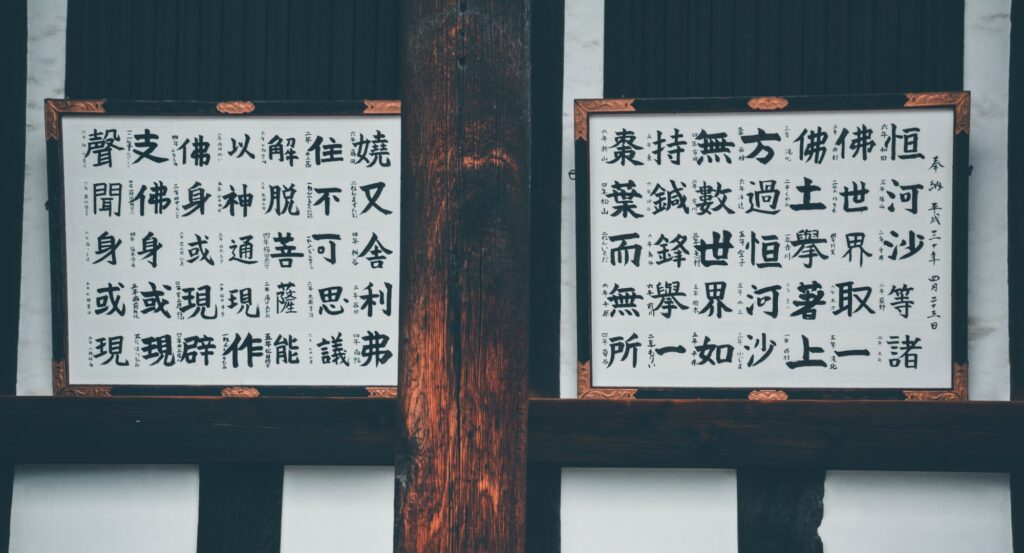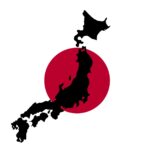
Traveling to Japan is a life-changing experience.
You’ll enter a land of contrasts, where traditional culture and cutting-edge technology exist. A land of great beauty, with towering mountains, pristine beaches, and tranquil gardens.
What could make your trip extra special? Taking the time to learn Japanese, even if just a little bit. Being able to greet people or navigate a menu will enrich your experience.
How can you learn a new language? Especially one as tricky as Japanese? Read on to find out.
Commitment Is Key
Anyone who has attempted to learn a foreign language can attest that it is not an easy task. Countless hours of smart studying and practice are necessary. And even then, achieving fluency can be challenging.
However, one key ingredient can make all the difference: commitment. Learning a new language requires considerable time and effort, but the rewards can be tremendous. For those willing to commit themselves to learn Japanese, the rewards will undoubtedly outweigh the challenges.
The key is to stick with it, even when it feels like you’re not making progress. Stay true to your productivity tactics. You can reach your goals and become proficient in Japanese with time and commitment.
Top Benefits of Learning Japanese
Learning Japanese has many personal and professional benefits that make it an excellent choice for anyone looking to improve their language skills. On a personal level, Japanese is a fascinating and complex language that can provide a lifetime of enjoyment.
It can also be valuable when traveling to Japan or interacting with Japanese speakers from other countries. Professional benefits of learning Japanese include improved job prospects, increased cultural understanding, and enhanced cognitive skills.
For example, many multinational companies have a presence in major cities like Kyoto and knowing Japanese can give job applicants a significant advantage. Those who already have a job may find that learning Japanese gives them a new perspective on business dealings with Japanese colleagues or clients.
In addition, as the world becomes increasingly interconnected, those who can bridge the cultural divide between East and West will be in high demand. Whether you’re looking to boost your career or appreciate another culture, learning Japanese is an excellent choice.
Support System for Learning a New Language
When studying Japanese, it’s essential to have someone to practice with, whether a tutor, a friend or even a family member. Having someone to bounce ideas off of and practice with will help you to learn the language much faster.
Additionally, it’s helpful to have someone who can offer feedback and answer any questions you may have. Having a support system in place will make learning Japanese much less overwhelming and help you achieve your goals.
Full Immersion Techniques
Go all in! The best way to learn a foreign language is to immerse yourself in it.
Immersion is when you surround yourself with the language you are trying to learn. This could mean living in a country where the language is popular, taking classes, or watching TV and movies in a foreign language.
You could also visit a Japanese restaurant and order in Japanese. Then eat with chopsticks!
Immersion forces you to think in the new language, which is the best way to learn it. When you constantly hear and see the language, you start to pick up on the nuances and understand how native speakers use it.
The average adult knows at least 42,000 words in their native language. Talking to someone who knows the language inside and out means you’ll instantly make meaningful connections.
You also start thinking about words in the new language and how they fit together, rather than just translating from your native language. This all adds to a much more effective way of learning a new language.
So if you want to learn a new language, find ways to immerse yourself in it. It may not be easy initially, but it will pay off in the end.
Set Trackable Goals
Setting goals and tracking your progress is essential when learning a new language. This will help you to stay motivated and on track.
First, decide what you want to achieve with your Japanese studies. Do you want to be able to hold a conversation? Read a newspaper? Write a letter?
Once you have a goal in mind, break it down into smaller goals you can achieve along the way. For example, if your goal is to be able to read a newspaper, your first goal might be to learn the alphabet. Then, you can learn how to read simple words and phrases.
As you accomplish each goal, check it off your list and move on to the next. Tracking your progress will not only help you to stay motivated, but it will also give you a sense of accomplishment as you see how far you’ve come.
Get a Tutor or Take Classes
One of the best ways to learn Japanese is to get a tutor or take classes. A tutor can help you to understand the language at your own pace and cater to your specific needs. If you’re more of a visual learner, they can provide materials to help you learn.
If you’re more of an auditory learner, they can help you to practice speaking and listening. A tutor can also answer any questions you have along the way.
Taking a class is also a great option, especially if you’re more of a social learner. In a style, you’ll be surrounded by other students who are also learning the language. This can provide an excellent opportunity to practice speaking and make friends who share your interest in Japanese.
Practice Every Single Day
One of the best ways to learn Japanese is to practice as much as possible. The more you use the language, the better you’ll become at it. You can practice by listening to Japanese music or watching Japanese TV shows and movies.
You can also read Japanese books or comics or even write in a Japanese journal. If you know someone who speaks Japanese, practice with them as often as you can.
The more you use the language, the easier it will become. So get out there and start practicing!
Learn Hiragana
Hiragana is the most basic of the 3 writing systems used in Japan. It consists of 46 basic characters, which can be used to write any Japanese word. While it originally developed as a way to write women’s names, hiragana is now used for a wide variety of purposes, including children’s books, comic books, and even some business documents.
Because of its simplicity, hiragana is often the first writing system that Japanese children learn. However, it is also useful for adult learners of Japanese, as it can help clarify the meaning of words written in kanji (Chinese characters).
In addition, because hiragana represents sound rather than meaning, it can be a helpful tool for learning how to pronounce new words. Whether you are a beginner or an expert, hiragana is a writing system that anyone can learn to use.
Learn Katakana
Katakana is another one of the Japanese writing systems, and it is used primarily for writing foreign words and names. The characters in katakana are based on Chinese characters, and they are written in a similar way to hiragana.
Katakana is also used to write important words or phrases in a sentence, to emphasize certain words, or to show contrast. For example, katakana is often used for onomatopoeic words, such as “Baku Baku” (explosion) or “pika pika” (sparkle).
Additionally, katakana can be used to write loanwords from other languages, such as “pasokon” (personal computer) or “supootsu” (sports). While katakana may seem daunting at first, it is a valuable tool for anyone interested in learning Japanese. With a little practice, you’ll be able to read and write katakana like a pro!
Memorizing Japanese Numbers
Anyone who has studied a foreign language knows that memorizing vocabulary can be a challenge. This is especially true for numbers, which are often used in a variety of different contexts.
However, there are a few simple tricks that can help make memorizing Japanese numbers a little easier. First, it can be helpful to break the numbers down into groups of three.
For example, 123 can be thought of as “1 hundred, 2 tens, 3 ones.” Once you have the numbers grouped in this way, you can start to associate them with images or words that will help you remember the order.
Another helpful tip is to practice writing out the numbers in both kanji and hiragana. This will help to reinforce the correct stroke order and make it easier to remember how to write each number. With a little bit of practice, you’ll be able to memorize Japanese numbers in no time!
Have Fun as You Learn Japanese
Be sure to have fun while you learn Japanese. It’s a fascinating language with a rich culture behind it.
Learning a new language can be a rewarding experience that will open up a whole new world to you. With the tips in this article, you’ll be well on your way to becoming a happy, and fluent Japanese speaker.
Did you want to learn about Japanese cuisine or travel opportunities? We’ve got you covered!
We also know the best travel spots for whenever you’re abroad. Check out the rest of my website and read another blog post. We’re glad you’re here.
- 12 Things to Do When Visiting Japan - October 7, 2022
- 13 Reasons to Move to Japan - October 7, 2022
- A Guide to Japanese New Year Traditions - October 6, 2022








